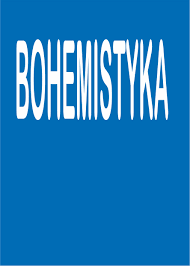Чешский фразеологизм modré pondělí ‘синий понедельникʼ на иноязычном фоне: от архаики до неологии
Czech phraseological unit modré pondělí ‘blue Monday’ on a foreign background: from archaic to neology
Author(s): Ljudmiła DanilenkoSubject(s): Theoretical Linguistics, Applied Linguistics
Published by: Uniwersytet Adama Mickiewicza
Keywords: phraseology;etymology;Czech-German contacts;semantic borrowing;dialects;custom of Ukrainian non-working Monday;new phraseological meaning
Summary/Abstract: The article is dedicated to the origin of the Czech phraseological unit modré pondělí ‘blue Monday’ within its two meanings: an archaic one ‘not to work on a Monday’ and a new one ‘the most depressing day of the year’. Through the study of documents and works on the history of crafts in Bohemia, as well as dialect vocabulary, the origins of this custom are clarified. The author develops the etymological hypothesis by the Brothers Grimm. The name ‘blue’ is connected with the rites of medieval carnival before the beginning of the Lent. For the first time, a comparison is made with the tradition of a work-free Monday, which existed in Ukrainian folk culture only for married women, and this right was stipulated in the marriage contract. Based on a combination of linguistic, historical and ethnographic data, the author comes to a conclusion that the common theme of a „Blue Monday” for Germanic and Slavic people has developed twice: in one case, as a fragment of the medieval tradition, and in the other, as an element of the modern marketing technique, taking into account the blue symbols and a superstitious view of Monday as a hard day of the week.
Journal: Bohemistyka
- Issue Year: XXI/2021
- Issue No: 1
- Page Range: 67-80
- Page Count: 14
- Language: Russian

